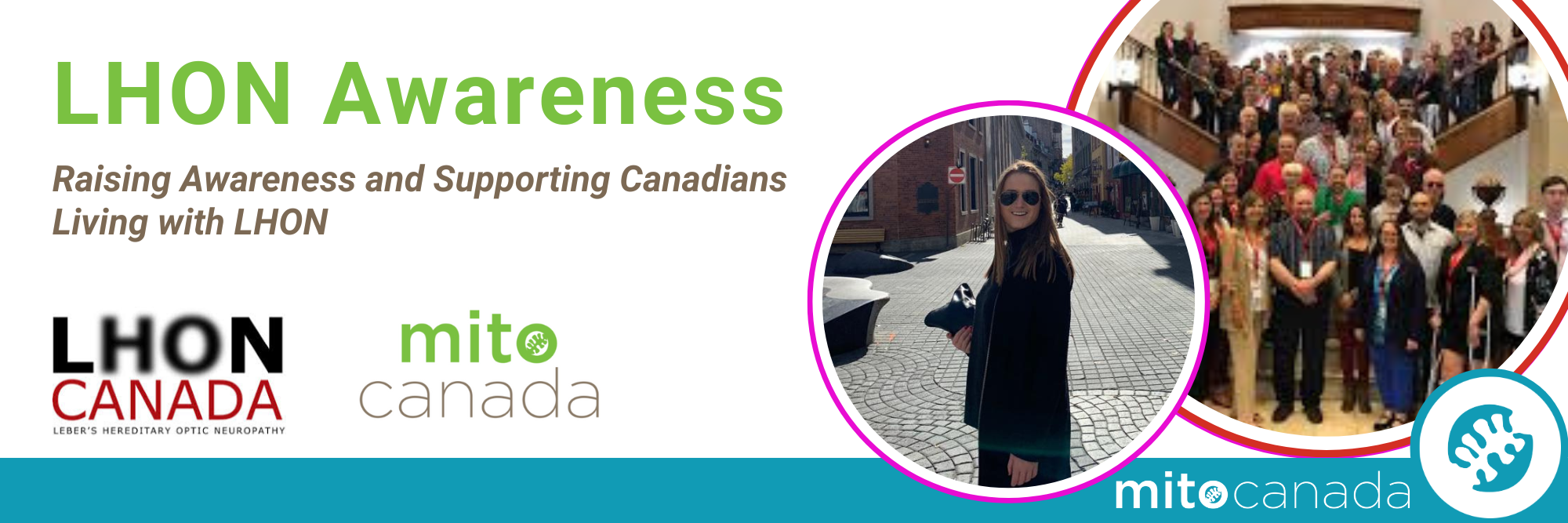Seeing Differently: My Experience with LHON
Guest Writer and Collaborator, Andrea Boland, LHON Canada
In 2017, I was on a canoe trip in Algonquin Park, sitting at the bow and scanning for hidden rocks while steering us clear. The sun was bright, my sunglasses were old, and at certain angles, the glare was blinding. I chalked it up to the light and my shaky paddling skills, but something felt off.
Back in the city, that same harsh glare showed up on my computer screen, but this time it stayed. It was the first sign of a rare mitochondrial condition called Leber hereditary optic neuropathy (LHON). It passed through my maternal side of the family that damages the optic nerve and steals central vision. It began in my right eye and, six months later, crept into my left, leaving me legally blind.
As an outside observer, you might never guess I’m partially sighted. I don’t use a white cane or have a guide dog. I can still see what’s in front of me, but it’s hazy and indistinct. It shows most when I hold my phone inches from my face to read a text, lean over my laptop at work to read documents, or snap photos of airport screens so I can zoom in on gate numbers. Because of that, people often forget I have LHON, which is a blessing and a curse.
Before I started losing my sight, I loved how small the world could feel. I might bump into an old friend on a beach halfway across the globe, spot a familiar face from years ago at a wedding, or recognize a friend-of-a-friend at a work event. Now those surprise encounters make me nervous. I worry I’ll seem distant or forgetful, when the truth is, I can’t see you. I often can’t place a voice right away or I’m thrown off by seeing someone outside the context where I know them. So if we cross paths and I don’t say hello first, please know I remember you. Come up and tell me your name, I can’t see you, but I always love reconnecting.
These days, I’m especially grateful for the people who think of me before I even think of myself: the ones who turn a food menu into a conversation instead of simply reading it aloud, who take a longer route to pick me up because I can’t drive anymore, who quietly point out stairs or a sudden drop to the street. (Let’s be honest, we all miss a step now and then, perfect eyesight or not.)
Life with LHON has reminded me that sometimes we get by with a little help from our friends, and I’m lucky to have so many who do just that. Thank you for knowing what I need before I figure it out myself.
Here’s what I don’t need: pity. “I’m sorry” is actually the hardest thing to hear. My eyesight is beyond anyone’s control, so instead of offering sympathy, it’s far more helpful to lend a hand if something practical needs doing. There’s plenty in life we can’t change, my vision just happens to be one of those things.
I also want people to know that I can and will advocate for myself. Many of the most interesting people I’ve met have faced some kind of hardship: a broken heart, a broken leg, or, in my case, broken eyesight. Those experiences teach resilience and empathy. I’ll be the first to admit I still have plenty to learn, but living with LHON has shaped me into who I am today. Part of that growth is having honest conversations with people who may not fully understand.
I truly value the kindness of strangers who offer their glasses or ask if I need help reading, but that doesn’t mean I’m eager to launch into my entire medical history. Sometimes I even have to set boundaries when someone presses about why I don’t wear glasses or get laser surgery. I’m happy to smile, say thanks, and leave it at that. Most people are simply trying to help, it usually comes from a good place.
Living with LHON has changed how I move through the world, but it hasn’t dimmed it. I may see fewer details, yet I notice more of what matters; empathy, connection, and the quiet strength of people who show up when it counts. Vision loss has taught me resilience, patience, and a deeper appreciation for the moments that brighten life.
My story isn’t about what I’ve lost; it’s about everything I continue to gain. If sharing it helps someone feel less alone, sparks understanding, or inspires a small act of kindness, that’s reason enough to keep telling it.
We can’t always choose our challenges, but we can choose how we meet them, and I choose to keep moving forward with courage, gratitude, and hope.
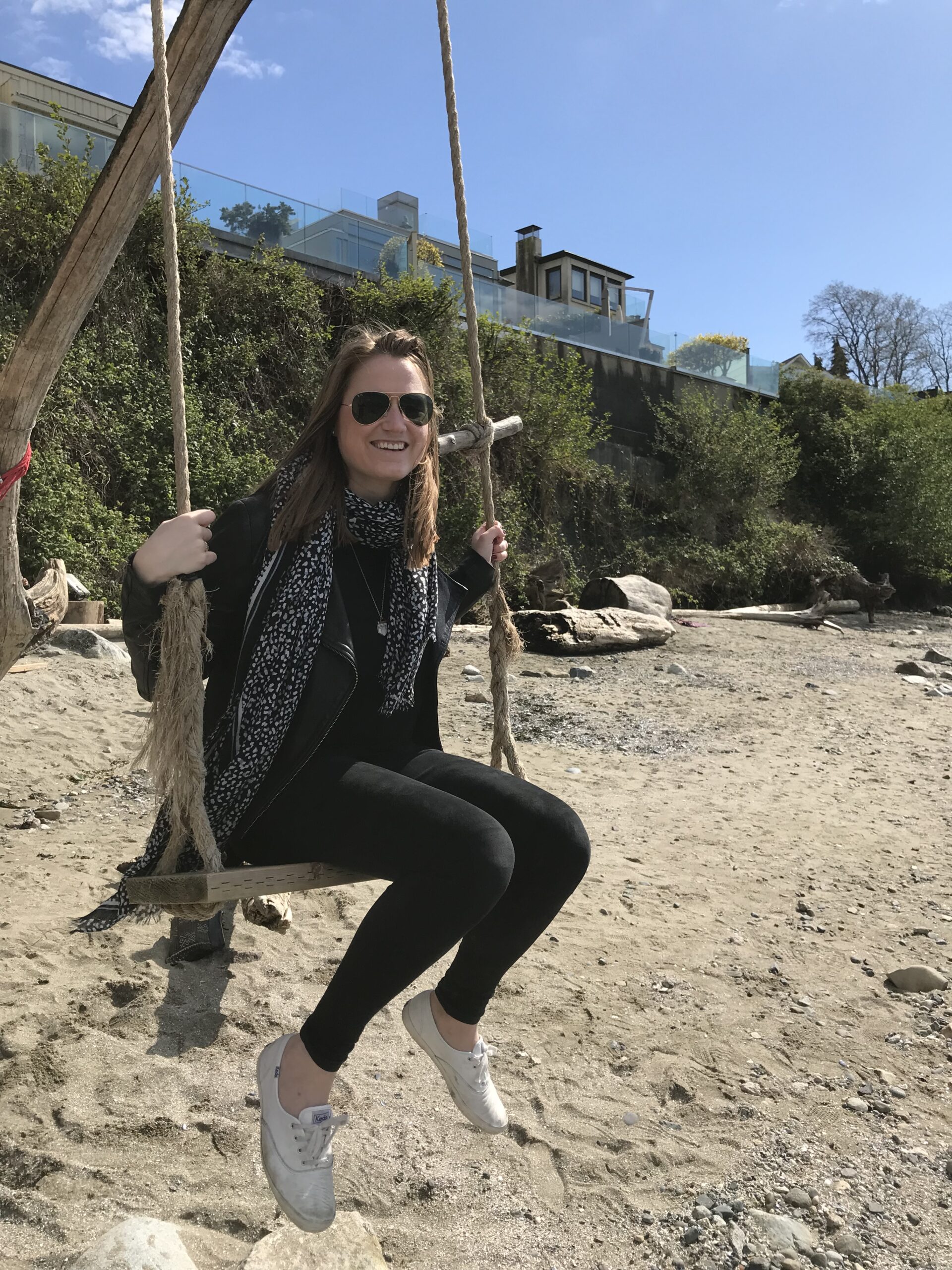
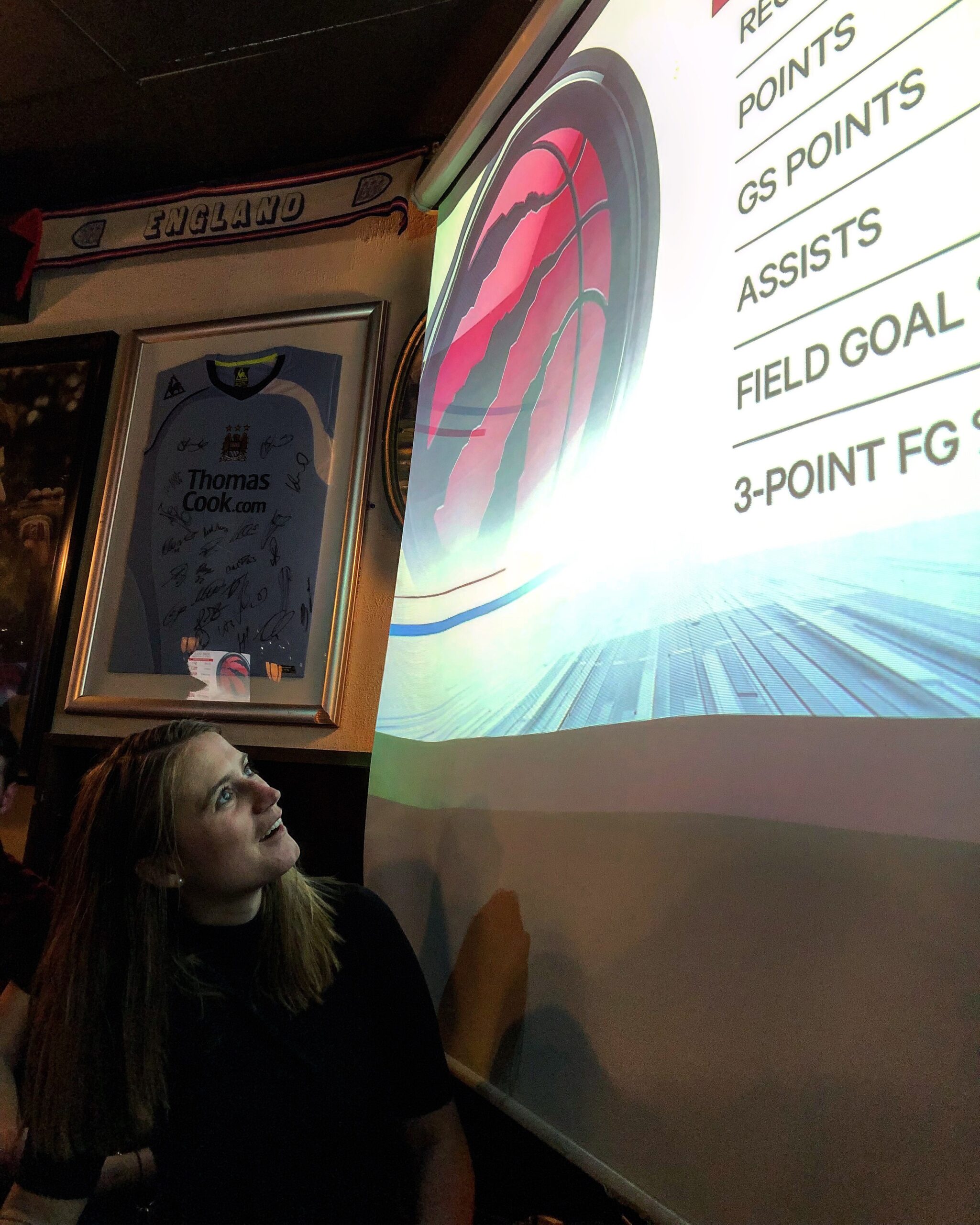
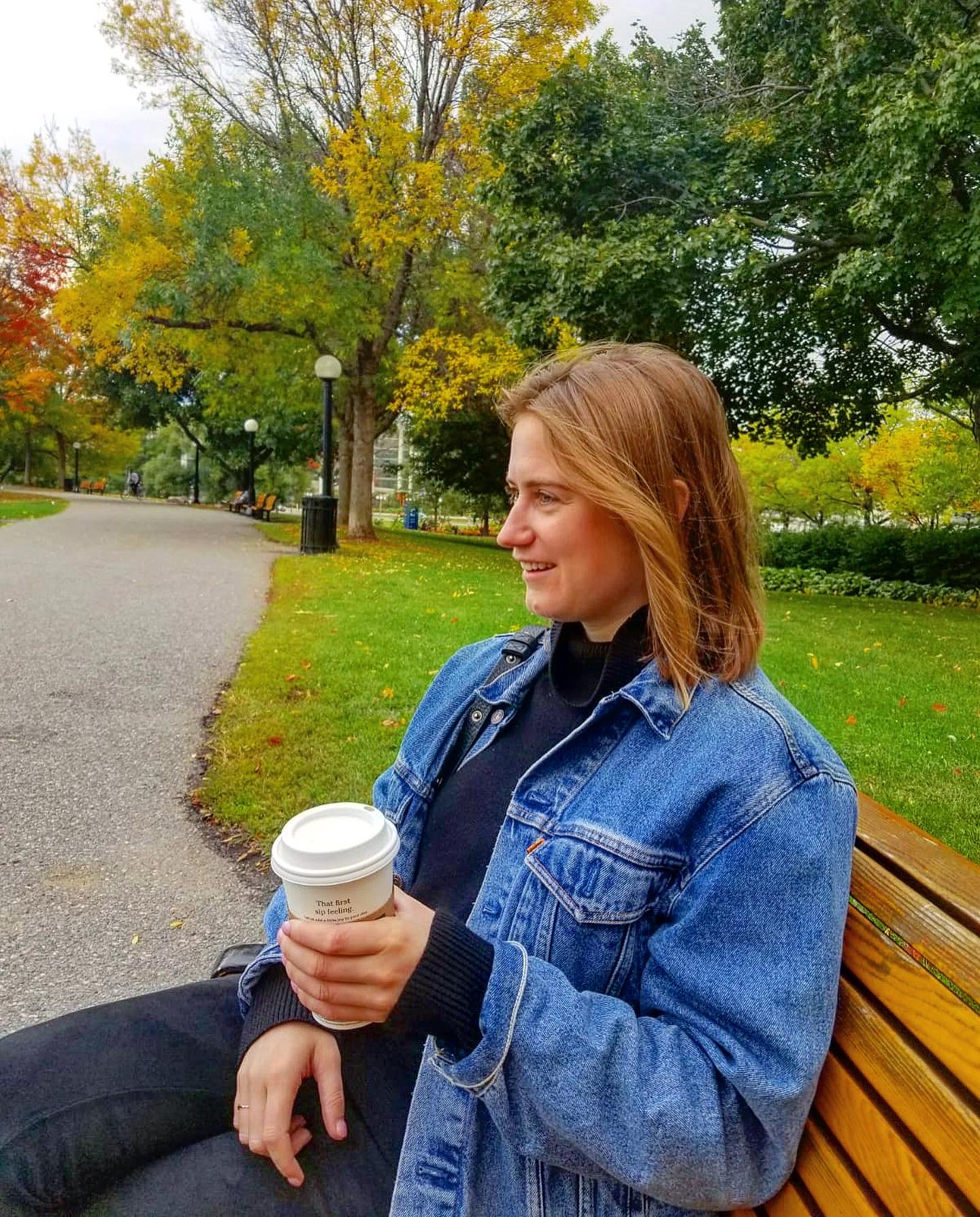
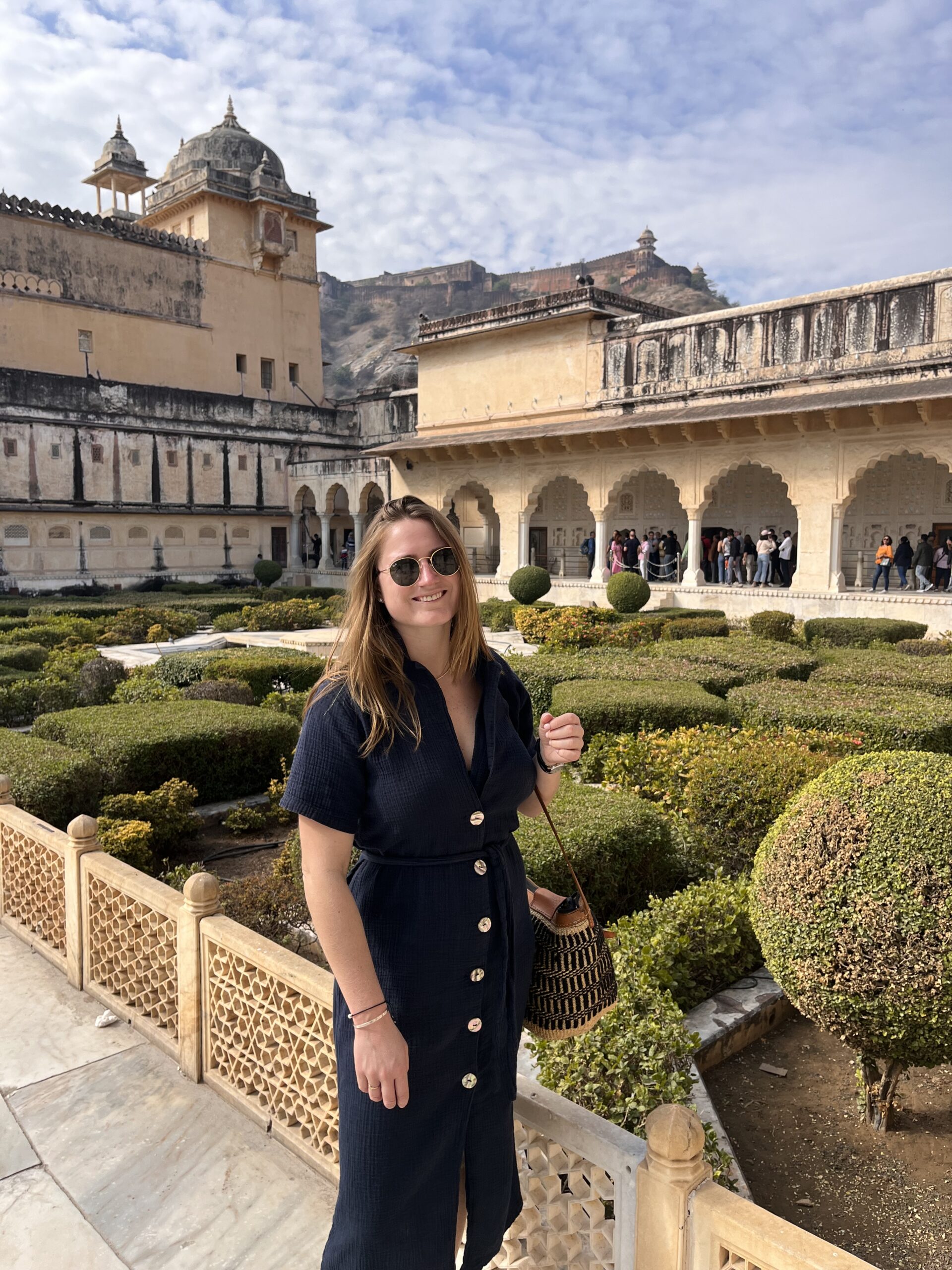
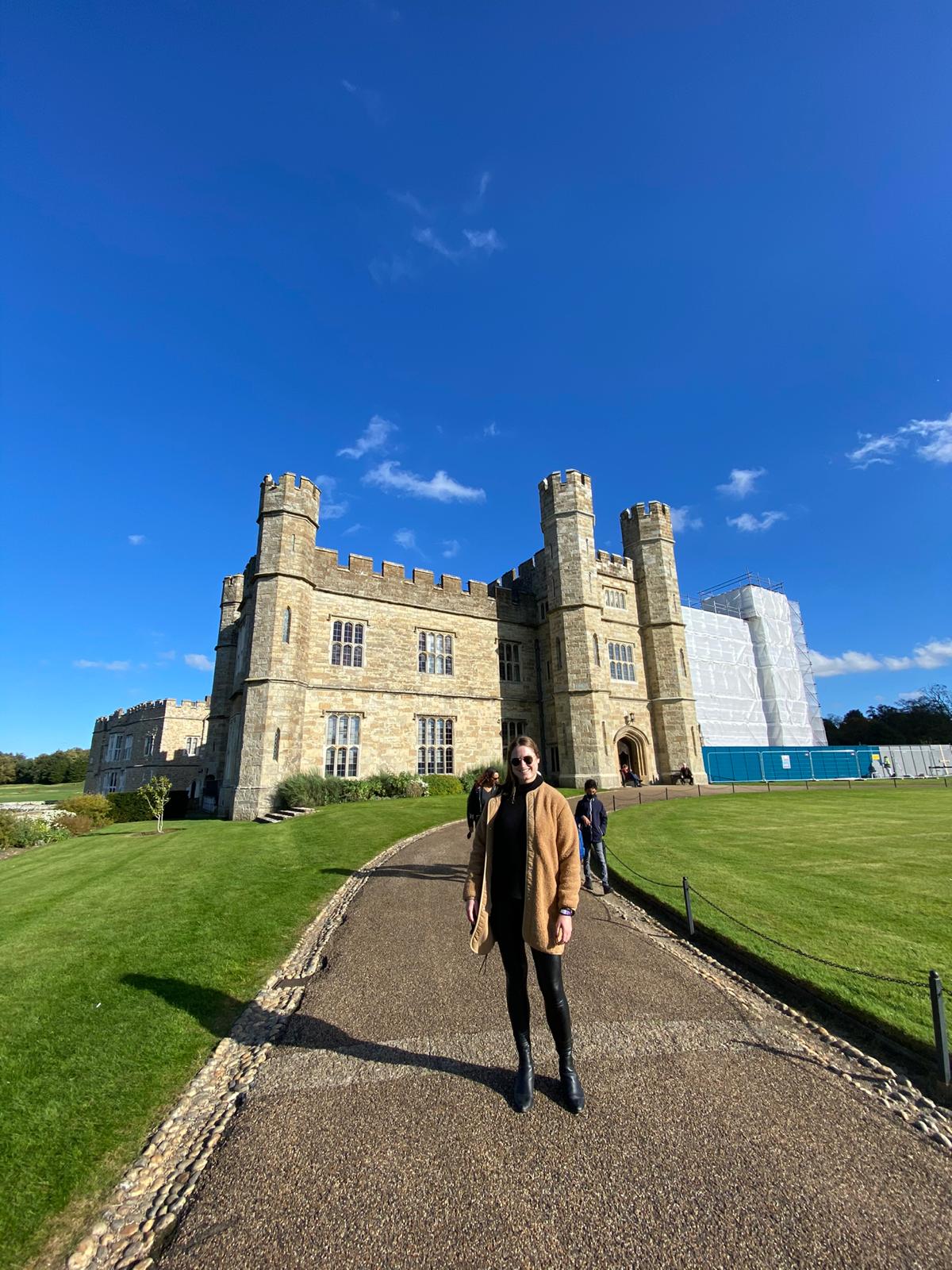
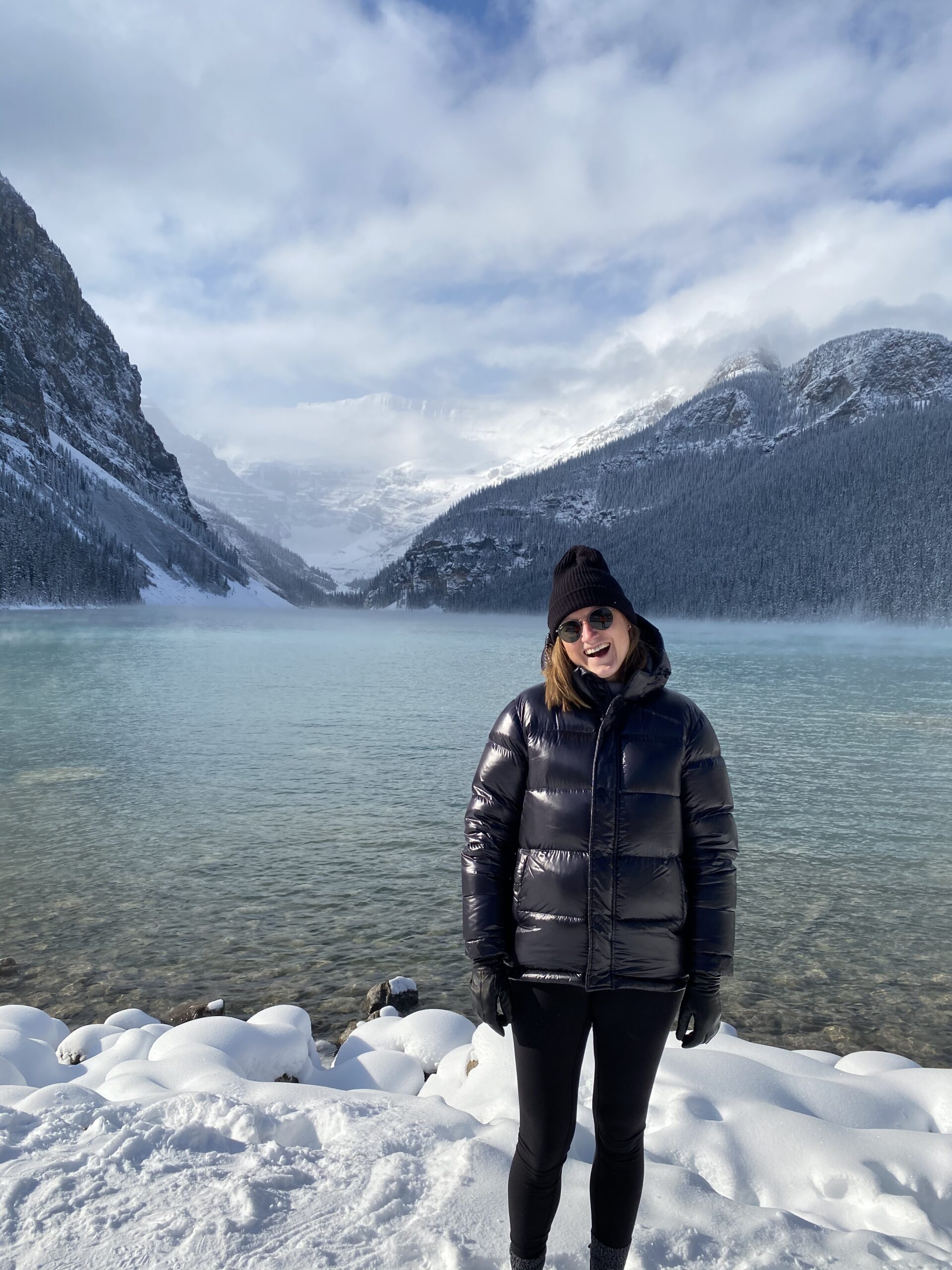
Learn more about LHON Canada
LHON Canada is a patient group supporting individuals and families affected by Leber hereditary optic neuropathy (LHON) from coast-to-coast, investing in quality of life programming, sight-saving research and leading efforts to educate and increase public awareness.
MitoCanada's Patient Registry and Commitment to Clinical Trials in Canada
MitoCanada invites Canadians living with Leber hereditary optic neuropathy (LHON) to join our secure Patient Registry, a patient-populated database where individuals and caregivers can share their experiences of living with mitochondrial disease. By participating, you’ll be contributing to a shared base of knowledge, helping improve understanding of LHON prevalence and patient experiences, and strengthening awareness and advocacy efforts across Canada. You’ll also gain access to information on clinical trials, and your input will directly inform the development of valuable educational tools and resources.
MitoCanada is committed to bringing LHON clinical trials to Canada, and by joining the registry, you’ll help ensure these opportunities reach the Canadian LHON community as quickly and effectively as possible.

